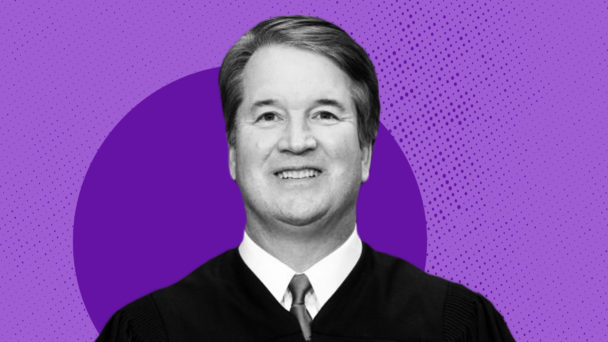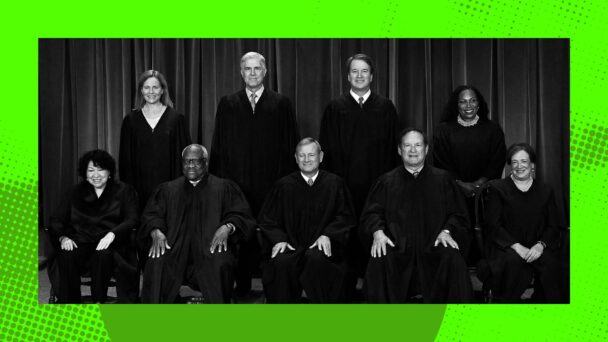Justice Ketanji Brown Jackson issued a dissenting opinion yesterday that did not mince words about the Supreme Court’s eager facilitation of the Trump administration’s discriminatory agenda. It was not the first time she has done so. And it will probably not be the last.
National Institutes of Health v. American Public Health Association is a case about the cancellation of $783 million in federal grants to universities, hospitals, and labs—staggering cuts that threaten life-saving scientific inquiry into subjects like heart disease, suicide prevention, and HIV transmission. In response to Trump’s various executive orders targeting “diversity, equity, and inclusion” and “gender ideology,” NIH took a look at its funding recipients and decided that medical research that costs nearly $800 million (and is probably worth a lot more over the long term) could not go forward.
In July, a federal district court decided that the terminations demonstrated “an unmistakable pattern of discrimination against women’s health issues” and “pervasive racial discrimination.” The court ordered the government to restore the funds, and to stop enforcing NIH’s internal guidance documents for determining compliance with Trump’s executive orders while the case is pending. The government then filed an emergency petition to lift the order.
Late Thursday afternoon, the Court gave the government most of what it wanted, reinstituting the cuts that the lower court had blocked. NIH v. APHA has five mishmashed opinions, but the upshot of the Court’s decision limits the district court’s jurisdiction to lawsuits about the guidance on funding cuts, but not the actual cuts. Challenges to the grant terminations, the Court decided, themselves must be heard in the Court of Federal Claims instead.
In a dissent that no other justice joined, Jackson explained the impact of the Court’s decision, which (and this is a technical term) puts lives in jeopardy for no goddamn reason. By separating review of the grant termination policy from review of the grant terminations, she wrote, the Court created a two-track system that “neither coheres legally nor operates practically,” and that literally no one asked for. “Neither party to the case suggested this convoluted procedural outcome, and no prior court has held that the law requires it,” she said.
It also is not immediately clear what, if anything, grant recipients can do to get their funding back: At best, Jackson says, the Court’s scheme for judicial review is “deeply inefficient.” At worst, it is “likely impotent.”
The real-world consequences are dire. The Court never actually details how people whose funding grants are terminated can get relief, and in the meantime, the disruptions to that funding will stop critical research from taking place. “Make no mistake,” Jackson said, “the forward march of scientific discovery will not only be halted—it will be reversed.”
The most important observation in Jackson’s dissent is that, although the Court’s decision is remarkable in the harm it will inflict, other aspects of the decision are painfully familiar: Instead of “hunkering down” to preserve whatever remains of the rule of law, she writes, the Court regularly opts to make “preventing manifestly injurious Government action as difficult as possible.”
In Jackson’s view, this is “Calvinball jurisprudence with a twist.” Calvinball refers to the made-up game played by Calvin and Hobbes, a boy and his imaginary tiger friend who are the titular characters in Bill Watterson’s long-running comic strip. Calvinball famously has only one rule: “There are no fixed rules.” Here, Jackson wrote the Court seems to have two: “That one, and this Administration always wins.”
Jackson’s dissent is not a mere disagreement with a colleague’s judgment. She is demonstrating that what her colleagues are doing isn’t even judging; laws have little to no bearing on the outcome of their decisions, which are determined instead by Republican policy goals. For a long time, members of the public and the coordinate branches of government have accepted the Supreme Court’s rulings because they assumed, from the outside looking in, that it is a legitimate body to be taken seriously. Jackson is showing why it is not.






